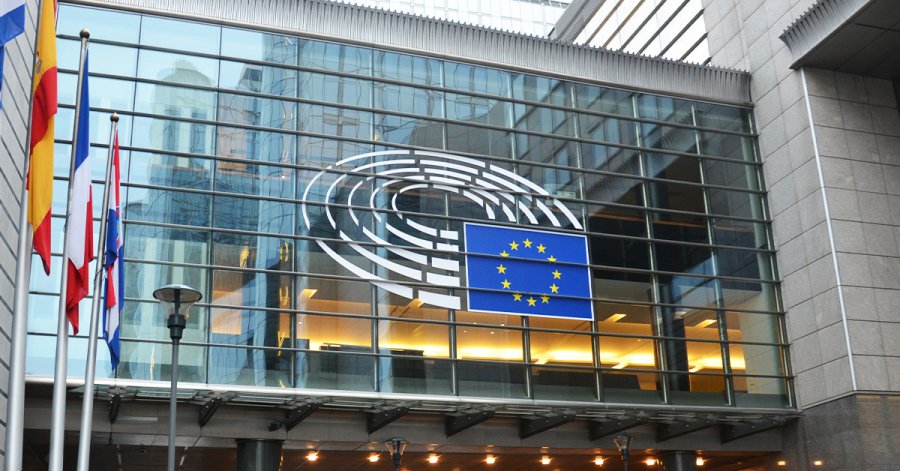ELECTIONS COMMENTARY: Main election topics of the upcoming European Elections
Our Kateřina Davidová and Vít Havelka published a commentary aiming to provide the reader with an overview and general understanding of the context that the upcoming European elections will take place in.
The next elections to the European Parliament are expected to be held between the 23rd and 26th May 2019. With national populism on the rise, Brexit turmoil, accelerating global warming and deteriorating security around the world, many consider the upcoming European election to be the most important one since European citizens started directly electing their EP representatives in 1979. The first seats projections suggest that the two largest factions – EPP and S&D – will suffer a major defeat depriving them of the majority in the house. Simultaneously, nationalistic parties are projected to experience significant gains, which might secure them up to 1⁄4 of the total number of seats 1. Regardless of result, however, it is probable that the campaign will be fierce, and that we might witness a divisive discussion about the most contentious topics, which have been occupying the European public space for the last decade.
Thus, in order to provide an overview and overarching framework to the European election debate, EUROPEUM Institute for European Policy has decided to release a series of publications, which will elaborate on specific topics that we think will play a significant role during the campaign: 1) deteriorating rule of law; 2) migration; 3) global warming; 4) European defense autonomy, and 5) economic policies. The following text should be perceived as an introduction into the dossiers and its aim is to provide the reader with an overview and general understanding of the context that the upcoming European elections will take place in.
Before diving into the issue-specific chapters, we would like to make few general remarks. As of now the media sometimes tend to present the elections as a fight between European liberal mainstream and national populism. However, we argue that this is an unfortunate simplification of a more complex division within the EU that mainly reflects the national positions. All the outlined topics will have a different importance in each of the member states and parties we might consider as national populistic will take different positions on them. For example, economic policies will presumably attract more attention in the South than in the CEE, whereas disputes over the Rule of Law will be present mainly in the CEE and to a lesser extent in the South. Moreover, we do not expect e.g. Italian Northern League to fiercely fight against Article 7 procedure while Fidesz and PiS might use it as a useful campaigning chip. Finally, we expect that each of the presented topics will be wrapped in nation-specific reasoning so the argument might significantly differ throughout the EU member states, although political outcomes might be the same.
You can download the whole publication through the PDF button on the right.
#EP elections #European Parliament #electionsSenior Research Fellow
Expertise: EU institutional relations with member states, europeisation, transformation role of EU
Senior Research Fellow
Expertise: EU climate and energy policy, environmental protection
Related articles
- EUROPEUM Institute's ranking of MEPs' influence
- BLOG | Belgium’s 2024 elections: Navigating Flemish nationalism amidst European challenges
- BLOG | Migration and climate at the forefront of the European elections in the Czech Republic. What does our research tell us about them?
- Blog | A drop of leftwing in a sea of rightwing? The Brazilian elections
- BLOG: French elections amidst the French Presidency – a reflection of the impact of the French Presidential campaign
- BLOG: The stakes of the upcoming French elections
- Policy Paper: What climate will the German and Czech elections bring?
- A dark day for US democracy
- The Polls are in – unpacking the Polish Presidential elections
- Democracy for better or for worse? Assessing Poland’s upcoming elections
- Just how much impact does the media have on elections?
- Kosovo elections – moving towards better future?
- Do we need new foundations? Institutional questions ahead of the new EU Commission
- In divided Cyprus, new tensions in decades-old dispute arise while history is made in the European election
- POLICY PAPER: The European Parliament and climate change: past, present and future
- POLICY PAPER: The Legal Status of Accredited Parliamentary Assistants
- Commentary: European Elections
- POLICY PAPER: Untying the Gordian Knot of the Common European Asylum System: Dublin IV Reform
- ELECTIONS COMMENTARIES: Main topics of the upcoming European Elections
- British politicians made Farage’s 2019 European election campaign easy
- ELECTIONS COMMENTARY: Economic Policies – Czech Party Programmes for the EP 2019 Elections
- Analysis Of the Activity Of the Czech MEPs During the 2014–2019 Term
- IFAT: How Could the European Elections Reshape Central Europe’s Role in the EU?
- Another successful Spitzenkandidat?
- European Parliament: a potential not fully utilized
- FEPS: From Paris to Prague: What lessons for socialists?
- Desperate gamble or strategic move by the Czech Prime minister?
- The Underrated Value of Political Cooperation and Stability
- In Search of a New Political Culture
- Labour Party's labour's lost or has Margaret Thatcher been forgotten?
- The Secrets of the Trade Secret Directive
- Some valuable lessons from U.S. politics?
- Socialization of CEE Governments in the EU Environment - Who Shapes the Norms?
- View from Prague: Czech disinterest, despite challenges posed
- Is Poland truly on the verge of a conservative Armageddon?
- Donbas elections: A way out or a road to nowhere?
- Card games and tricks of the national parliaments in the EU
- What can the EU do to contain the risk of the “Brexit”?
Staroměstské náměstí 4/1
Prague 1 - Staré Město
110 00
tel.: +420 212 246 552
email: europeum@europeum.org
https://www.europeum.org


